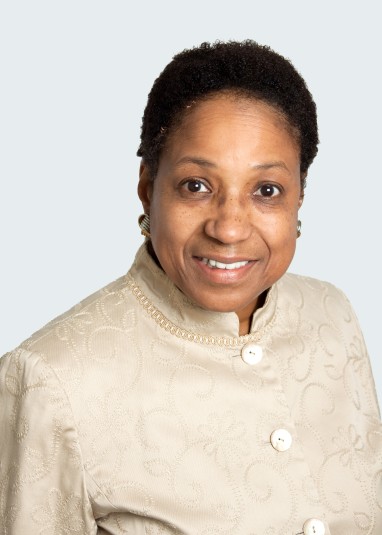
Luther College is a selective, undergraduate liberal arts institution of about 2500 students located in the small northeast Iowa town of Decorah. It is affiliated with the Lutheran Church (ELCA). Each year their Diversity Center sponsors a Kwanzaa celebration. This blog explains why. Sheila Radford-Hill is the Executive Director of the Diversity Center.
A few years ago, a colleague questioned why Luther College celebrated Kwanzaa. I realize that a college with a population of less than 10% African and African American students may seem like an unlikely venue for this event. In fact, when I arrived at Luther ten years ago, the founders of the Luther campus celebration expressed some surprise that Kwanzaa was still thriving despite a decline in black student enrollment. This blog shares why the campus celebrates Kwanzaa and the people responsible for its success.
I begin with relating a criticism about Kwanzaa because it helps explain why understanding and appreciating black cultural heritage is so important. In exploring the idea of cultural appreciation, my colleague wondered “Is not the diversity of African cultures erased and ignored with the reductive and essentialist list of seven allegedly universal African principles of Nguzo Saba?” He was also concerned about the fact that “by celebrating some imaginary black universality, we are overlooking the real, authentic history, resilience, and beauty of the African heritage in America?”
I mentioned this exchange to Maulana Ron Karenga, the man who developed Kwanzaa, when we met at a conference in Trinidad several months later. As I briefly related my colleague’s argument, Dr. Karenga smiled graciously and intoned, “Never let anyone make you ashamed to celebrate who you are.” I smiled too but I’ve come to realize that Kwanzaa is more than a vestige of black pride.
Kwanzaa opens us up so that we can understand the cultural legacy of race in the U.S. and around the globe. Kwanzaa creates opportunities to acknowledge the fraught and contested nature of African-descended identities in the US.
While breaking bread and lighting candles together, we have permission to raise significant questions about who black people in America really are and why it is important for all Americans to know and understand the impact of race in the U.S.
Celebrating Kwanzaa throughout the campus acknowledges the anger and the triumph that attends the nation’s history. Members of majority cultures who witness America’s racial legacy can acknowledge that they often feel guilty, defensive, indifferent or confused about race in America. By honoring the history of African-Americans, we can all begin to appreciate why those who created the color code and its attendant hierarchies are confused by the desire for black self-definition. We can have empathy with people from the continent of Africa, not to mention those from other nations, who have trouble making sense out of race in the U.S. In short, during Kwanzaa, we celebrate, educate, explore, and discuss.

At Luther, we acknowledge Kwanzaa as an African-American and Pan-African holiday that commemorates the ‘first fruits’ of the harvest. We explain that “Kwanzaa” is a derivative of “matunda ya kwanza” meaning “first fruits” in Swahili. We acknowledge the vision of Dr. Malauna Ron Karenga.
Although Kwanzaa is a seven-day celebration that begins on December 26, we celebrate before Christmas Break with a chapel service and a communitywide celebration that includes a gallery of respect created by students to acknowledge black Americans who have contributed to making the world a better place. We share our gifts in the form of our talents, pouring of the libation, and a fabulous Karamu that includes goat meat, fried and baked chicken, cornbread, greens, potatoes and an assortment of pies. Our day of the celebration is open to all students and members of the Decorah community are invited to join in. Visitors from other campuses are welcome.
The day before our Karamu, College Ministries hosts a chapel service that includes lighting the Kinara with students reading their own stories about what Kwanzaa means to them. Wherever our students come from in the world, Kwanzaa reminds them of the importance of building healthy individuals, families, communities, and nations. We use the principles of Kwanzaa, known as the Nguzo Saba, to engage our campus community in a deeper appreciation for the African ancestry of African-Americans and offer hope to all people with the desire and determination to reach their full potential.
The Kwanzaa’s principles and their meanings are:

Kujichagulia Self-Determination
Ujima Collective Work & Responsibility
Ujamaa Cooperative Economics
Nia Purpose
Kuumba Creativity
Imani Faith
So why is this event so successful every year? How does it involve more than 200 people in the planning, performing, and eating? The answer lies in the students who volunteer for the event and in the staff leadership within the Luther Diversity Center (LDC).
Wintlett Taylor-Browne, Director of Student Services for the LDC, practices the Nguzo Saba in planning the celebration. She works with purpose (Nia) and creativity (Kuumba) to maintain the support of College Ministries, Facilities, Printing, the Box Office, Catering, and students. Our student workers and volunteers work collectively (Ujima) and are responsible for what they agree to do for the Chapel and the celebration.
Several departments of the college and members of the community pool resources (Ujamma) to keep the event affordable and we work together as one campus (Unity) to make each year, the best ever. We are determined (Kujichagulia) to celebrate Kwanzaa as a time when we follow African-Americans in building strong communities and in acknowledging our past but moving forward through faith (Imani) towards a brighter future.
Our chapel this year will be held on December 13 at 10:30 a.m. The Karamu is December 14 beginning at 4:00 p.m. For more information call 563/387-1014.